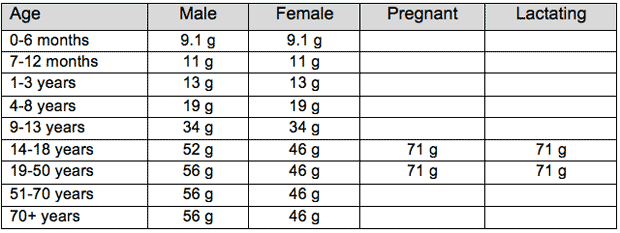
Adequate Daily Intake Of Protein. Three-day food diaries recorded protein intake in 38 participants. If you consume 2000 calories per day this would work out to be between 200 to 700 calories of protein per day. Accelerometry was used to collect physical activity data as well as volume and patterns of sedentary time. While 08g per kg body weight is adequate protein for a sedentary woman research shows that higher protein in takes between 12 and 16 gkg body weight help support weight loss1 Foods that are high in protein actually slow down the digestive process which makes our brains think we are feeling fuller and also requires more calories for digestion.

Daily protein requirement guideline The generally recommended daily protein intake is 09 grams per kilogram of body weight for adolescents and 08 grams per kg of body weight for adults 00145 oz per lb and 0013 oz per lb. Apart from the total daily intake per-meal protein quantity and daily frequency of protein ingestion have also been shown to play an important role in preserving muscle mass and function. Protein distribution coefficient of variation CV and per meal amounts were calculated. According to the previously mentioned studies a protein intake of around 30 of calories may be optimal for weight loss. Snacks are a good way to get extra protein into your diet as long as you choose the right types. This amounts to 150 grams per day for someone on a.
Eat Your Protein First.
Adequate intake of high-quality protein does help boost your weight loss efforts and to build lean muscle mass. The proportion of these amino acids varies as a characteristic of a given protein but all food proteinswith the exception of gelatincontain some of each. 14 Easy Ways to Increase Your Protein Intake 1. Accelerometry was used to collect physical activity data as well as volume and patterns of sedentary time. While 08g per kg body weight is adequate protein for a sedentary woman research shows that higher protein in takes between 12 and 16 gkg body weight help support weight loss1 Foods that are high in protein actually slow down the digestive process which makes our brains think we are feeling fuller and also requires more calories for digestion. The recommended daily intakes RDIs can also be calculated by a persons body weight.